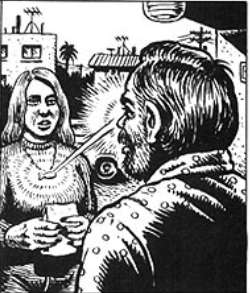PKD biographer, Lawrence Sutin, dates Phil's "pink beam" experience following a dental procedure when a dark-haired girl delivered some pain medication to Phil's door to February 20th, 1974.
Sutin writes, "What precisely happened on that February 20 after Phil gazed upon the golden fish?" (210)
Sutin's source notes at the end of the book, usually quite thorough, offer nothing to substantiate that date. He points to a letter Dick wrote to Ursula LeGuin in 1973 that confirms the delivery took place in February. Phil writes, "... in February I had major oral surgery, and was home recovering, still under the influence of the sodium pentathol, and in severe pain." (SL 1974, 247)
So I asked biographer Gregg Rickman, who responds, "Phil refers to the Valis event as "2-3-74" many times in the Exegesis, as shorthand for the months of February and March."
So, I asked PKD's friend Tim Powers who responded, "And I don't know if he talked about it to anyone right after it happened. I lost track of him for about a year right after he married Tess -- in fact I wonder if he was talking to anybody but Tess at that period!"
PKD's friend Bill Sarill and ex-wife Tessa reconstructed the day as a Thursday, making it either the 14th or the 21st of February.
As Erik Davis says, "There's too much noise on the line" to determine exactly what happened and when. Dick fans looking for certainty in life have obviously not been paying attention to Dick's work, which foregrounds this radical uncertainty the characters must work through.
At the end of last semester a student asked if I had a time machine, where and when would I go. My answer without hesitation was "Orange County, February 1974." I've been thinking the last couple of days about what I would've seen if I'd been lurking outside PKD's apartment that fateful day.
Would I have seen the pink beam? Doesn't seem like the delivery girl saw it, so why should I? Honestly, I'm not even convinced anything really happened. I could see PKD flashing on how intense it would be if it had happened and maybe moving straight to creating elaborate fictive narratives around it. But the flurry of activity prompted by the event (a million words of notes on the subject) suggests the truth of the experience for Dick, even if the ferocity and manic quality of the belief argues for skepticism.
This is a long way of saying, take some time next Tuesday and think about the difference between what you know, that is your empirical experience, and what you are given to know through revelation, known as transcendental experience. Now deconstruct the false binary. Even in empirical experience our perceptions still leap this magical and mysterious chasm between external reality and our internal subjectivity, and in doing so, sure act a lot like revelation. And revelation has to be processed by the mind and made sense of, which involves all the standard tools of experiential thinking.
In other words, this anniversary is a chance to inject a little of the mystery that animated the end of Dick's life into your own.
Illustration from R. Crumb's "The Religious Experiences of Philip K. Dick."


